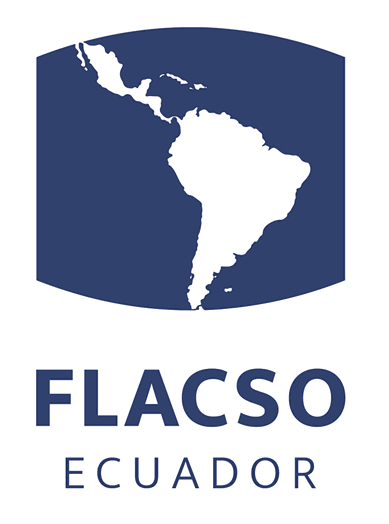Por favor, use este identificador para citar o enlazar este ítem:
http://hdl.handle.net/10469/2704Registro completo de metadatos
| Campo DC | Valor | Lengua/Idioma |
|---|---|---|
| dc.creator | Arboleda Ríos, Paola | - |
| dc.date | 2011-01 | - |
| dc.date.accessioned | 2011-01-18T21:54:11Z | - |
| dc.date.available | 2011-01-18T21:54:11Z | - |
| dc.identifier.citation | Arboleda Ríos, Paola. ¿Ser o estar “queer” en Latinoamérica? El devenir emancipador en: Lemebel, Perlongher y Arenas (Dossier) = Being queer in Latin America? The Emancipatory Becoming in: Lemebel, Perlongher, and Arenas. En: Íconos: Revista de Ciencias Sociales. ¿Cómo se piensa lo "queer" en América Latina?, Quito: FLACSO sede Ecuador, (no. 39, enero 2011): pp. 111-121. ISSN: 1390-1249 | en |
| dc.identifier.issn | 1390-1249 | - |
| dc.identifier.uri | http://hdl.handle.net/10469/2704 | - |
| dc.description | ¿Cómo nombrar las transgresiones homo/lésbica/bi/trans/a/sexuales –LGBT– en el caso de América Latina si los modelos importados no responden (por lo menos no completamente) a las realidades de los sujetos que intentan definir? Este trabajo explora cómo, en contra de las imposturas homosexuales de occidente, escritores y artistas latinoamericanos como Néstor Perlongher, Pedro Lemebel y Reinaldo Arenas proponen estrategias rebeldes para re-imaginar el proyecto queer latinoamericano. Sus creaciones contestan los modelos importados tanto de análisis teórico como de formas de ser disidente y reivindican la importancia social del amor. Ser/estar queer en América Latina sugiere entonces una suerte de des-identidad, un devenir-incesante, siempretransgresor, siempre-auto-emancipador. | en |
| dc.description | How to name the homo/lesbian/bi/trans/a/sexual –LGBT– transgressions in the case of Latin America when imported models do not respond (at least not completely) to the realities of the subjects that they attempt to define? This article explores how, against Western homosexual impositions, Latin American writers and artists, such as Néstor Perlongher, Pedro Lemebel, and Reinaldo Arenas, propose rebel strategies for re-imagining the queer Latin American project. Their creations contest important models, both theoretical analysis and dissident forms of being, and demand recognition of the social importance of love. To be queer in Latin America suggests, then, a kind of des-identity, an incessant-becoming, always-transgressive, always-self-emancipatory. | en |
| dc.format | p. 111-121 | en |
| dc.language | spa | en |
| dc.publisher | Quito : FLACSO sede Ecuador | en |
| dc.rights | Atribución-NoComercial-SinDerivadas 3.0 Ecuador | * |
| dc.rights.uri | http://creativecommons.org/licenses/by-nc-nd/3.0/ec/ | * |
| dc.subject | AMÉRICA LATINA | en |
| dc.subject | LGBT | en |
| dc.subject | LESBIANAS, GAYS, BISEXUALES, TRANS | en |
| dc.subject | HOMOSEXUALIDAD | en |
| dc.subject | LEMEBEL | en |
| dc.subject | PERLONGHER | en |
| dc.subject | ARENAS | en |
| dc.subject | AMOR | en |
| dc.subject | LITERATURA | en |
| dc.subject | LATIN AMERICA | en |
| dc.subject | HOMOSEXUALITY | en |
| dc.subject | LOVE | en |
| dc.subject | LITERATURE | en |
| dc.title | ¿Ser o estar “queer” en Latinoamérica? El devenir emancipador en: Lemebel, Perlongher y Arenas | en |
| dc.title.alternative | Being queer in Latin America? The Emancipatory Becoming in: Lemebel, Perlongher, and Arenas | en |
| dc.type | journal | es_ES |
| dc.tipo.spa | Revista | en |
| Aparece en las colecciones: | Revista Iconos No. 39, ene. 2011 | |
Archivos en este ítem:
| Archivo | Descripción | Tamaño | Formato | |
|---|---|---|---|---|
| RFLACSO-I39-08-Arboleda.pdf | 122,42 kB | Adobe PDF |  Visualizar/Abrir |
Este ítem está sujeto a una licencia Attribution NonComercial ShareAlike (CC BY-NC-SA 4.0)
Licencia Creative Commons



